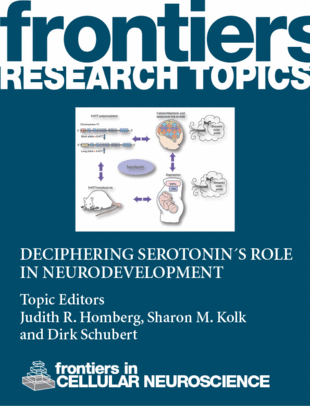The evolution of mesenchymal stem cell-derived neural progenitor therapy for Multiple Sclerosis: from concept to clinic
IF 4.2
3区 医学
Q2 NEUROSCIENCES
引用次数: 0
Abstract
This review delves into the generation and therapeutic applications of mesenchymal stem cell-derived neural progenitors (MSC-NPs) in Multiple Sclerosis (MS), a chronic autoimmune disease characterized by demyelination, neuroinflammation, and progressive neurological dysfunction. Most current treatment paradigms primarily aimed at regulating the immune response show little success against the neurodegenerative aspect of MS. This calls for new therapies that would play a role in neurodegeneration and functional recovery of the central nervous system (CNS). While utilizing MSC was found to be a promising approach in MS therapy, the initiation of MSC-NPs therapy is an innovation that introduces a new perspective, a dual-action plan, that targets both the immune and neurodegenerative mechanisms of MS. The first preclinical studies using animal models of the disease showed that MSC-NPs could migrate to damaged sites, support remyelination, and possess immunomodulatory properties, thus, providing a solid basis for their human application. Based on pilot feasibility studies and phase I clinical trials, this review covers the transition from preclinical to clinical phases, where intrathecally administered autologous MSC-NPs has shown great hope in treating patients with progressive MS by providing safety, tolerability, and preliminary efficacy. This review, after addressing the role of MSCs in MS and its animal model of experimental autoimmune encephalomyelitis (EAE), highlights the significance of the MSC-NP therapy by organizing its advancement processes from experimental models to clinical translation in MS treatment. It points out the continuing obstacles, which require more studies to improve therapeutic protocols, uncovers the mechanisms of action, and establishes long-term efficacy and safety in larger controlled trials.间充质干细胞衍生神经祖细胞治疗多发性硬化症的演变:从概念到临床
多发性硬化症(MS)是一种以脱髓鞘、神经炎症和进行性神经功能障碍为特征的慢性自身免疫性疾病。目前大多数治疗范例的主要目的是调节免疫反应,但在治疗多发性硬化症的神经退行性病变方面收效甚微。这就需要在神经退行性变和中枢神经系统(CNS)功能恢复方面发挥作用的新疗法。利用间充质干细胞治疗多发性硬化症被认为是一种很有前景的方法,而间充质干细胞-NPs疗法的启动则是一种创新,它引入了一种新的视角--双重作用计划,同时针对多发性硬化症的免疫和神经退行性机制。利用该疾病动物模型进行的首次临床前研究表明,间充质干细胞-NPs 可迁移到受损部位,支持髓鞘再形成,并具有免疫调节特性,从而为其在人类的应用奠定了坚实的基础。基于先导可行性研究和一期临床试验,本综述涵盖了从临床前阶段到临床阶段的过渡,其中经鞘内注射自体间充质干细胞-NPs在治疗进展性多发性硬化症患者方面展现出了巨大的希望,具有安全性、耐受性和初步疗效。本综述在阐述了间充质干细胞在多发性硬化症及其动物模型实验性自身免疫性脑脊髓炎(EAE)中的作用后,通过整理间充质干细胞-NP疗法在多发性硬化症治疗中从实验模型到临床转化的进展过程,强调了间充质干细胞-NP疗法的重要意义。报告指出了目前仍存在的障碍,这些障碍需要更多的研究来改进治疗方案、揭示作用机制并在更大规模的对照试验中确定长期疗效和安全性。
本文章由计算机程序翻译,如有差异,请以英文原文为准。
求助全文
约1分钟内获得全文
求助全文
来源期刊

Frontiers in Cellular Neuroscience
NEUROSCIENCES-
CiteScore
7.90
自引率
3.80%
发文量
627
审稿时长
6-12 weeks
期刊介绍:
Frontiers in Cellular Neuroscience is a leading journal in its field, publishing rigorously peer-reviewed research that advances our understanding of the cellular mechanisms underlying cell function in the nervous system across all species. Specialty Chief Editors Egidio D‘Angelo at the University of Pavia and Christian Hansel at the University of Chicago are supported by an outstanding Editorial Board of international researchers. This multidisciplinary open-access journal is at the forefront of disseminating and communicating scientific knowledge and impactful discoveries to researchers, academics, clinicians and the public worldwide.
 求助内容:
求助内容: 应助结果提醒方式:
应助结果提醒方式:


